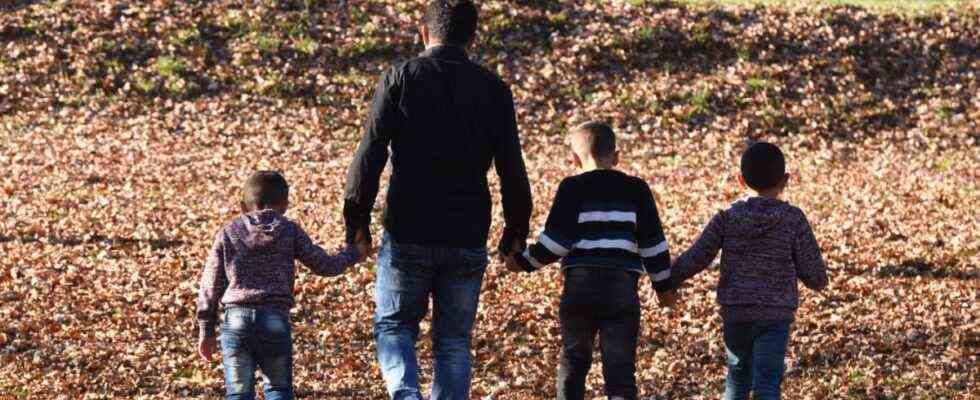Child care is already available for many families in which there is mother and Father gives a problem. It is even more so for single parents. And the situation for single parents became completely difficult due to the corona pandemic. Korbinian Müller (Name changed) remembers with a shudder the weeks and months in lockdown, a time of social isolation and excessive demands for him and for his three children between the ages of ten and 13. If the single parent meeting that the Wolfratshausen Children’s and Youth Association is now planning had already taken place, “that would have been wonderful!” Says the curative educator.
Müller is in his early forties, he and his wife separated years ago, one of the children is always with him, the other two live with father and mother on a weekly basis. He works a little less, 30 hours a week, in a facility for people with severe multiple disabilities. A job that he loves, but which can also be emotionally stressful.
Single parent with three children: “This is generally a childcare problem,” says Müller, “a huge balancing act.” When all three are with him, everyday life looks like this: In the morning, drive two children to the schools that are several kilometers apart; one is big enough to get to school on its own. Then quickly home, switch to the bike – cheaper and faster in the morning rush hour – and off to work a few kilometers away. He works three days a week from eight to two or two-thirty, but two days until 4.20 p.m. The lunchtime care of one child has already closed for 20 minutes. The other’s open all-day school had no free space at all on Mondays and only goes until noon on Fridays. “The children have to find shelter somewhere,” says the father, calling the whole thing a juggling game. One day his parents step in, otherwise friends. Especially in the initial phase of the corona pandemic, however, his parents, who are both approaching seventy, the father also has heart problems, were very careful. The children should stay away.
And then the phases of complete lockdown: “That was really bad.” The father used emergency care. “First I had to justify that I have no other way out.” In the afternoon he took care of the children’s schoolwork. What sounds so fast and modern – homeschooling – was actually a huge burden for the whole family. First of all, in addition to the only computer in the household, he had to buy a printer and two used laptops, says Müller, so that everyone could work. Then a faster internet to make the many video meetings crash-free. “Everything has often collapsed.” It was not uncommon for it to be eight or eight thirty in the evening before everything was settled. At some point he said, “the children have to be able to be children too,” and broke up early.
For the school children, the corona restrictions are so difficult and momentous, says the father. “All students now have deficits.” His little one had sagged so much that he decided to have him repeat a class instead of cramming him through with a bang. And what about himself? After the hard afternoons there was only one thing left for him in the evening: “Wash clothes, prepare snacks and everything else for the next morning, and then go to bed.”
A curative educator is not a big earner, and with all the additional financial burdens of the pandemic, the account is often in the red, says Müller. But he found the emotional strains just as difficult. “You felt very isolated and as a lone fighter.” Often he did not know where and how to find help and support and “phoned from pillar to post”.
Always being alone with this experience as a father or mother can wear people down. Fritz Meixner, managing director of the children and youth development association (KJVF) Wolfratshausen, knows that. His association has carried out a comprehensive collection of data on the subject of single parents. The case numbers of the education and care facilities of the KJVF, the social work at schools, the help of the youth welfare office and the educational counseling center in the social area north were evaluated. The results show a clear tendency: in more and more cases, the parents seeking help or care are just “parents”, that is, single parents. This ranges from around 30 percent in school social work to more than 50 percent in youth welfare.
From this knowledge, Meixner’s association draws the conclusion: A single parent meeting is needed in Wolfratshausen. The group offer should start in spring and initially be a contact point for single parents every 14 days. It should enable the exchange of ideas and experiences, ensure childcare, provide information from speakers, for example on the subject of maintenance, and joint activities. The rooms are there, says Meixner. Material support will be necessary for handicrafts and toys, volunteer support and excursions. Korbinian Müller thinks the performance is great, if only because of the exchange of information – “and that you know you are not alone”.
The SZ advent calendar would like to support the establishment and operation of the planned meeting and asks readers for donations.

